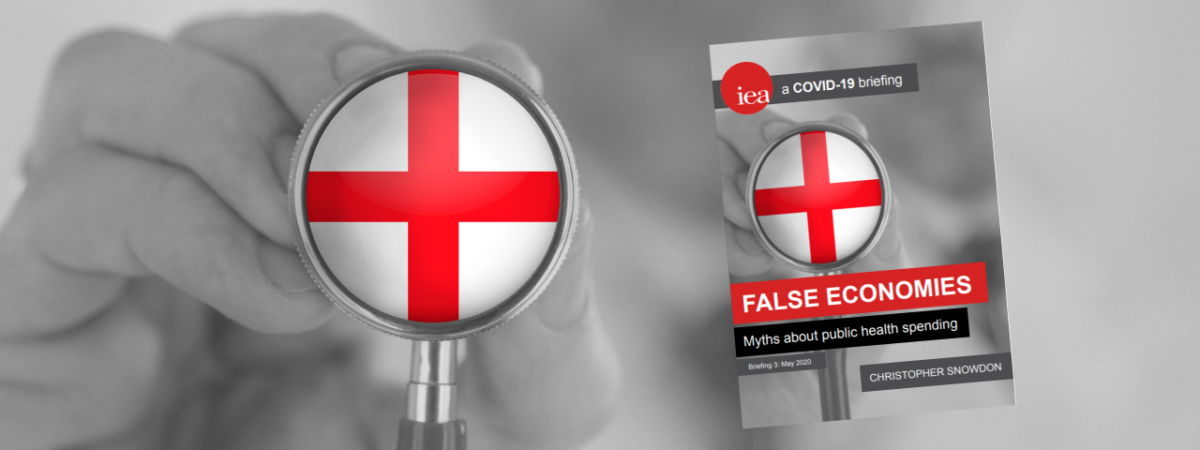Covid-19, pay stuctures and compensating differentials: why we need greater wage flexibility
SUGGESTED



There have been understandable calls from unions and others for the pay of these workers to be increased to reflect the dangers they are facing on our behalf.
For example, Frances O’Grady, the TUC’s General Secretary, took the opportunity of her May Day message to insist that ‘the government must give all key workers the pay, conditions and respect they deserve. That’s how to really thank the people who got us through this crisis.’
I would not necessarily quarrel with this sentiment – it reflects the emotions displayed every Thursday evening at the moment – but it needs to be put into the wider context of pay determination.
In a free market, pay naturally adjusts to reflect the conditions associated with the job, including the risk of serious injury or death. A substantial body of empirical work by economists has established that, after allowing for other influences on pay such as training and education, there is a significant premium paid for a greater risk of death in a job. The size of such ‘compensating differentials’ is used to calculate the ‘Value of a Statistical Life’. This is a measure used in the United States by regulators who try to balance the cost of enhanced safety procedures – in nuclear power plants, building sites, airlines and many other areas of the economy – against the monetary value of lives saved.
Such an exercise (which currently values an American life saved at approximately $10 million) can be criticised by people who say the value of a human life should not be reduced to a number. But they have a responsibility to tell us just how they would decide how much we should spend on safety.
This is very relevant, incidentally, to the decision when to end our current lockdown, given that the costs in terms of lost jobs and output is rising by the day.
One paper that I have read is particularly relevant to the question of paying more to workers at risk from coronavirus. It covers an analogous situation in the early days of AIDS, when the disease was little understood, and nurses were at considerable risk of infection and likely death.
The paper shows that, in those metropolitan areas of the USA with a high incidence of AIDS, nurses were paid significantly more than those where the disease was less prevalent. The authors conclude that ‘this differential represents compensation paid for job-related exposure to potentially HIV-infected blood’.
Of course, such a compensating differential could emerge in the USA, where there are no national pay rates for nurses or other medical professionals. Here things are very different. With national pay scales, strong public sector unions, common national minimum wage rates and strong rules on gender pay gaps, compensating differentials which might emerge are suppressed.
If the risks of Covid-19 persist over many years, as they may well do in the absence of the much-hoped-for wonder vaccine, we are likely to see a shortage of key workers in those fields where risks are greatest if we continue to suppress such differentials.
One controversial point is that this might well over time alter the gender composition of medical professionals in front-line roles. It appears to be the case that male doctors and nurses are at greater risk of coronavirus death than females (incidentally, across the economy as a whole, 96% of work-related deaths occur to men). In the absence of compensating differentials, over time we might expect males to retreat disproportionately from roles involving contact with Covid-19 patients.
What you make of that observation is up to you. However, if we return to the question of raising pay for key workers, we should reflect that our highly-regulated wage structure will end up paying extra for many workers who are not at any more risk than I am.
An across-the-board NHS pay increase will benefit large numbers of NHS staff who are nowhere near the Covid-19 front line. An increase for Transport for London staff, currently being demanded by the unions, will benefit already well-paid train drivers, although they are at much less risk than bus drivers or platform staff on the underground.
At a time when the demands on the shrinking taxpayer base are increasing daily, we just cannot afford indiscriminate pay increases but must be much more selective when considering the compensation of key public sector workers.
More generally, we should look to market forces to point to ways out of our current difficulties, rather than accepting that the government (swayed hither and thither by volatile and emotional social media) knows best, on pay or anything else.
1 thought on “Covid-19, pay stuctures and compensating differentials: why we need greater wage flexibility”
Comments are closed.





According to this article in the Health Service Journal, ‘frontline’ NHS workers are at no greater risk than the general population:
https://www.hsj.co.uk/exclusive-deaths-of-nhs-staff-from-covid-19-analysed/7027471.article